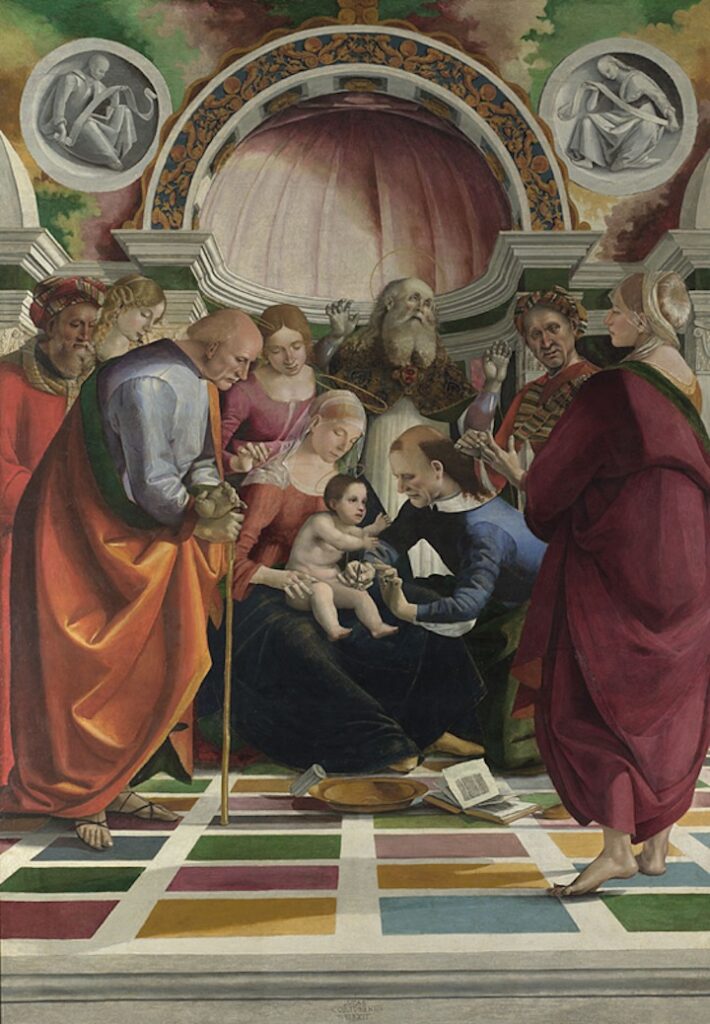From obscure origins, dwelling at Ur of the Chaldees (Genesis 11:31), and nomad wandering, with Abraham into Canaan, and then into slavery in Egypt; and out of Egypt and slavery with Moses; and led by Joshua back into the promised land of Canaan; the Hebrews are brought into the focus of history.
And we are traveling with them through these distant, often impenetrable times. As we are told with reiterated clarity in the Bible, this is a chosen wandering.
It was not chosen by the people themselves, but by their God; or as we have come to understand more simply, by God. The story that we inherit is the life we inherit, which proceeds unambiguously from the Jews.
The more one familiarizes oneself not only with the Hebrew Scriptures, but with the literary remains of all the other peoples of the “Near” and “Middle” East, the more strange this becomes. For we are reading not only an unusual ethnic history. The shafts that are sunk in time also reach a theological reality that is palpable.
The Jews are not chosen, as by a divine but arbitrary hand. They are chosen in divine revelation, and shown the direction they must follow, or fail to follow. This makes them different, unique, distinct from all the other ancients that we study.
The hand of God may be traced through Hebrew scriptures – again, unlike that from which we would become familiar in any of the alternative, “pagan” traditions. The spiritual and moral sensibility that emerges, the structure of commandment, marks them radically apart.
When we, who call ourselves Catholic, look back at this history, prior to the physical appearance of Christ, we have no choice but to concur with the Jewish opinion, of what was, and is, true.
The circumstances may be mysterious, but they are also plain, or obvious. This is one of the paradoxes of religious “mystery”: that what is most impenetrable is simultaneously most plain.
We read, and if we are sensitive, we feel the calling; if you will, the “chosenness” of Holy Scripture. This is not because the historical accounts are convincing, in any rationally empirical way; but because they answer, in the story that they tell, to something inevitable. It is the story of our human coming of age.
Faith, too, is obvious in its mystery. We aren’t reading a collection of scientific papers, or an anthology of religious writings. We are reading – hearing – the word of God.
Demands are made upon us. We are told what is true, and right, and beautiful: demands in themselves that will, directly or indirectly, determine our course. Or be rejected, of our free will, for they imply a life of holiness from which we, as nature’s animal, may swinishly rebel.
The demands are inconvenient. This can radically pain us. We are asked to give up our narcissism, our “ego,” upon which our survival seems to have been based, and to embrace something that was from the beginning presented as immortal.

The “modern” Christian message was there from the beginning: give up what you have. For you are chosen.
It is the same message in the Hebrew, as it is in the Magnificat sung by Mary: that cosmic Yes that is uttered when man accepts his fate; and when woman accepts her fate; it is profoundly joyful.
To understand the phenomenon of anti-Semitism is to understand what happens when we say No. It is not something that is done to us, but rather, something that we do.
The anger against the Jews – the psychopathic anger for which we ought to be prepared by now – is in its essence an anger with God, and with His order.
We are outraged because the Jews are “not normal.” We insist on their reduction, and their persecution, in rather the way that our ancestors insisted on the Crucifixion of Christ.
For there is, and there may be discovered in the Scriptures, something Christlike in every chosen Jew. He is a means to the realization that man has been created in the image of God.
This is not some “random fact.” It defies the commonplace with which we are accustomed. For the God in whose image we are created is a particular God, known to us through a particular history.
It is a history in which the Jews were the conductors of an act of divine will, and in which we, the latter-day Christians, must acknowledge in some sense that we are Jews. For only Jews were chosen.
A strange envy is based on this. And here I wish to say that Envy is not a minor sin. In the case of the anti-Semitism that we have witnessed recently, and through history before, it rises to the murderous behavior that we have seen: horrors too horrible to casually describe.
By no coincidence, such crimes are committed by the godless. This is true of the Islamic terrorists whose massacres often dominate the news. We think, wrongly, that they are religious fanatics. They aren’t.
The Islamism of the present day has had its own historical development, which passes through the Baathist revolutions that swept the Arab region decades ago. The “racial profile” of a typical Islamist is not that of a religious mystic, such as the Sufi traditions have engendered. It is not of a devout, practicing Muslim, except when for show. We are dealing with unambiguously political monsters.
Similarly, within the West, we now deal with an enemy we find most passionate on our university campuses: students far removed from religious humility, and their proud Leftist guides.
It is why, in the past, we were confronted by Nazis, whose hatred of Jews transcended their hatred of every other enemy; and why Jews have suffered pogroms, not only under Stalin.
The sight of a Jew is, mysteriously but plainly, a reminder in the flesh, of God. It inspires the wickedness of our first rebellion.
__________















